Writing a recommendation letter for a special needs instructor is a meaningful way to support a dedicated educator in their professional journey. In this heartfelt correspondence, you can highlight their unique skills, passion for teaching, and the positive impact they have made on their students. By sharing specific anecdotes and qualifications, you can vividly portray their commitment to fostering an inclusive learning environment. If you're looking for tips and templates to craft the perfect recommendation, read on to discover more!
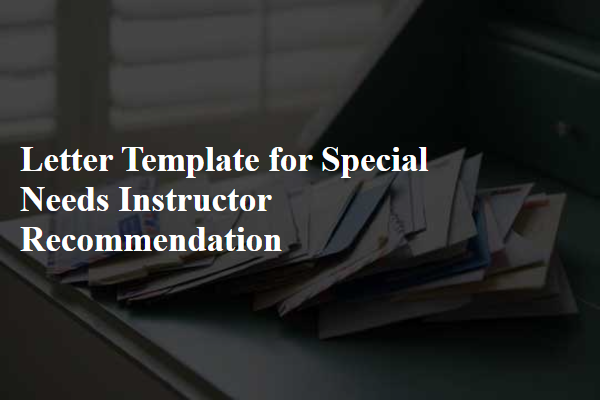
Personalized assessment
Personalized assessments for special needs students, particularly within inclusive educational settings like public schools, require careful consideration of individual abilities, learning styles, and challenges. These assessments often utilize a variety of tools such as standardized tests, observational assessments, and dynamic assessments tailored to each student's unique needs. Details such as the student's age, specific disabilities (e.g., Autism Spectrum Disorder, Dyslexia), and educational goals (e.g., improved communication skills, social interaction) should inform the assessment process. Collaborating with multidisciplinary teams, including special education teachers, speech-language pathologists, and occupational therapists, is crucial for developing a comprehensive understanding of the student's capabilities. Effective personalized assessments also promote goal setting, allowing for individualized education plans (IEPs) to be created that address the student's distinct learning requirements while fostering both academic and social-emotional development.
Specific skills and strengths
A special needs instructor possesses unique skills in adaptive teaching methodologies tailored for diverse learning abilities, emphasizing individualized education plans (IEPs). Strong communication skills enable clear engagement with students, fostering a supportive learning environment. Expertise in behavior management techniques provides strategies for addressing various challenges, promoting positive social interactions. Proficiency in assistive technologies, such as communication devices like speech-generating software, enhances the educational experience for non-verbal students. Additionally, patience and empathy play crucial roles, allowing the instructor to effectively connect with students, fostering their confidence and overall development. Educational background may include specialized training or certification, such as Certified Autism Specialist, enhancing the instructor's ability to support students with Autism Spectrum Disorder (ASD).
Adaptability and empathy
An exceptional special needs instructor demonstrates remarkable adaptability in diverse learning environments, consistently addressing the unique requirements of each student. For instance, their ability to modify lesson plans to accommodate varying cognitive levels ensures all students engage with the material effectively. This educator's empathy is evident in their understanding of emotional and developmental challenges faced by students, allowing them to create a supportive atmosphere that fosters growth. Within the classroom setting, they encourage open communication, enabling students to express their feelings and needs freely. Their commitment to student success includes regular collaboration with therapists and parents, ensuring a comprehensive approach to each child's educational journey. Such attributes not only facilitate better learning outcomes but also contribute significantly to the overall well-being of their students.
Relationship with students and families
A dedicated special needs instructor fosters strong relationships with students and their families, creating a supportive and nurturing environment. By actively engaging with diverse families, such as those from urban communities in Chicago or suburban areas in Seattle, the instructor builds trust through open communication and regular check-ins. Understanding individual needs of students with conditions like Autism Spectrum Disorder or Down syndrome, the instructor tailors instruction methods, ensuring that learning is accessible and effective. Organizing events, like family workshops or support groups, strengthens community ties and provides valuable resources for caregivers. This relationship-centric approach not only enhances student development but also empowers families to play a pivotal role in their child's educational journey.
Contributions to inclusive environment
A dedicated special needs instructor fosters an inclusive learning environment through personalized teaching approaches, adaptive resources, and strong advocacy for students with disabilities. They implement evidence-based strategies to accommodate diverse learning styles across various disabilities, including autism spectrum disorder and learning disabilities. Engaging classroom activities support social integration, enhancing peer relationships and collaboration among students. Additionally, the instructor organizes workshops and training sessions for staff, promoting awareness of special needs and inclusion strategies. Their commitment to building a supportive community ensures that every student, regardless of their challenges, feels valued and empowered to reach their full potential within the educational setting.
Letter Template For Special Needs Instructor Recommendation Samples
Letter template of recommendation for a special needs instructor supporting a student’s growth.
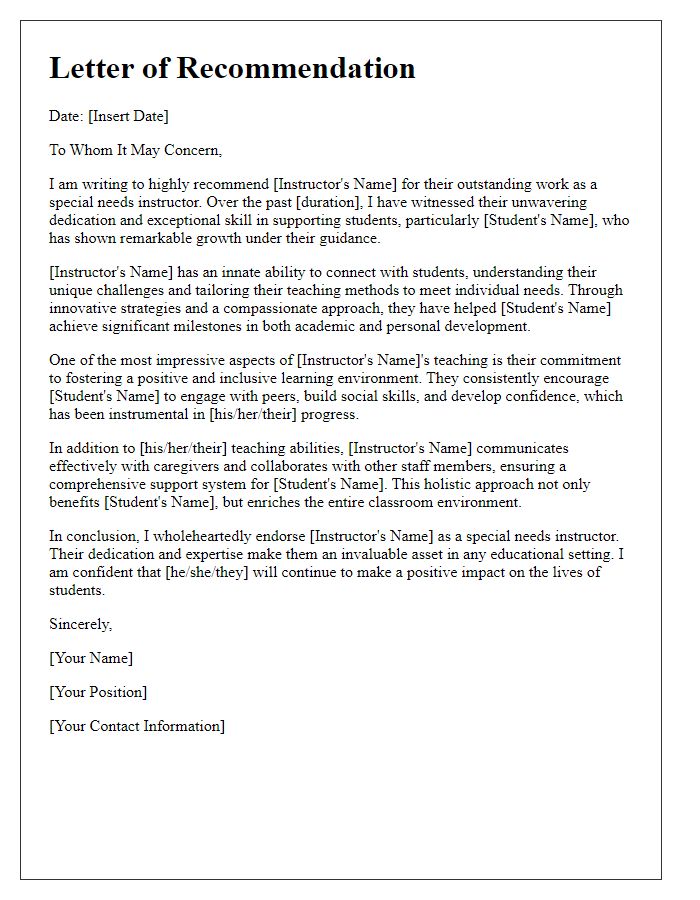
Letter template of recommendation for a special needs instructor highlighting individualized teaching strategies.
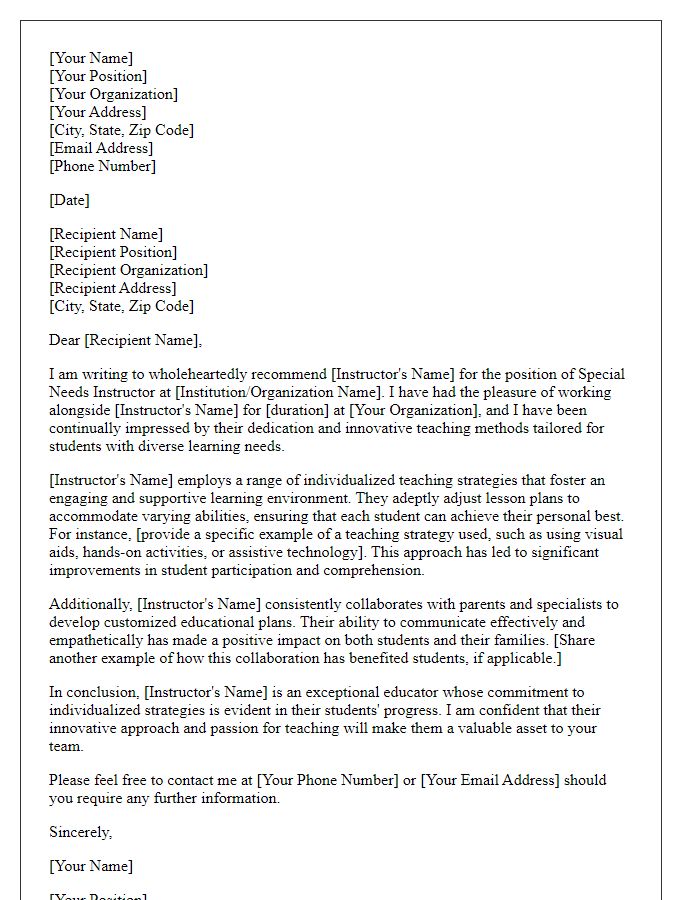
Letter template of recommendation for a special needs instructor emphasizing compassionate student engagement.
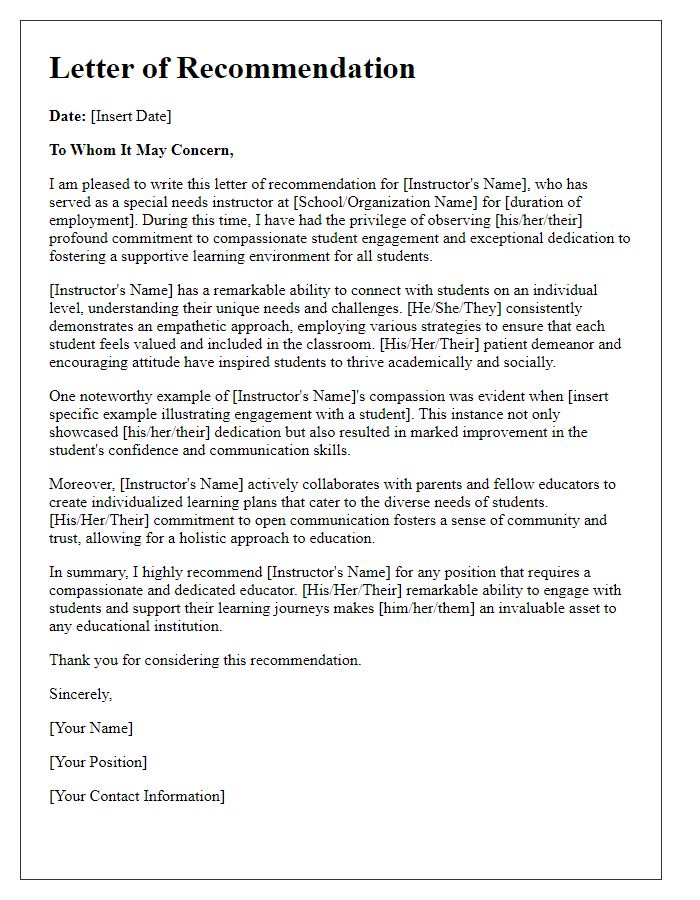
Letter template of recommendation for a special needs instructor showcasing collaboration with therapists and parents.
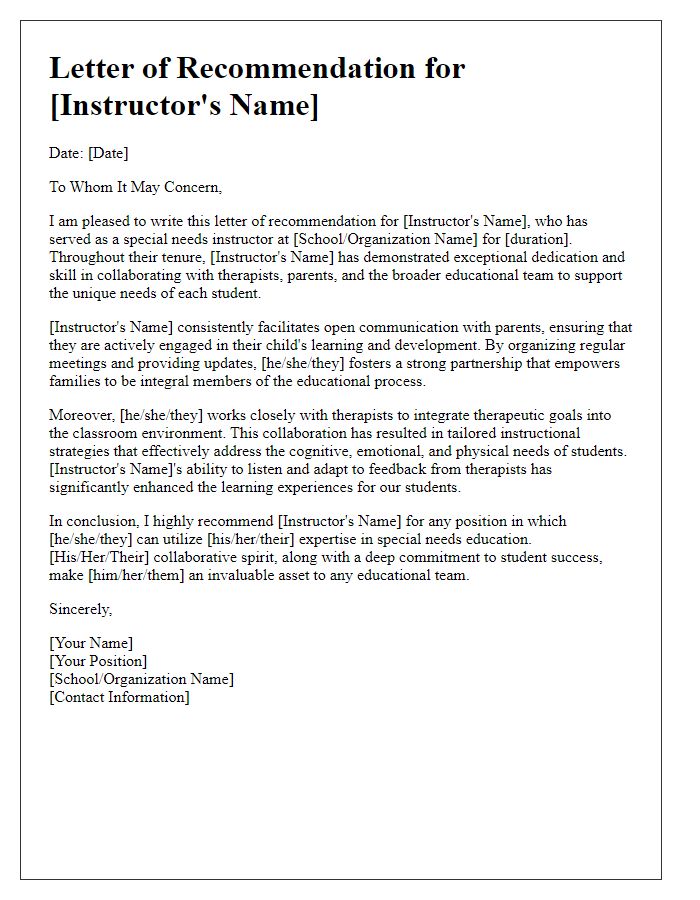
Letter template of recommendation for a special needs instructor detailing successful lesson adaptations.
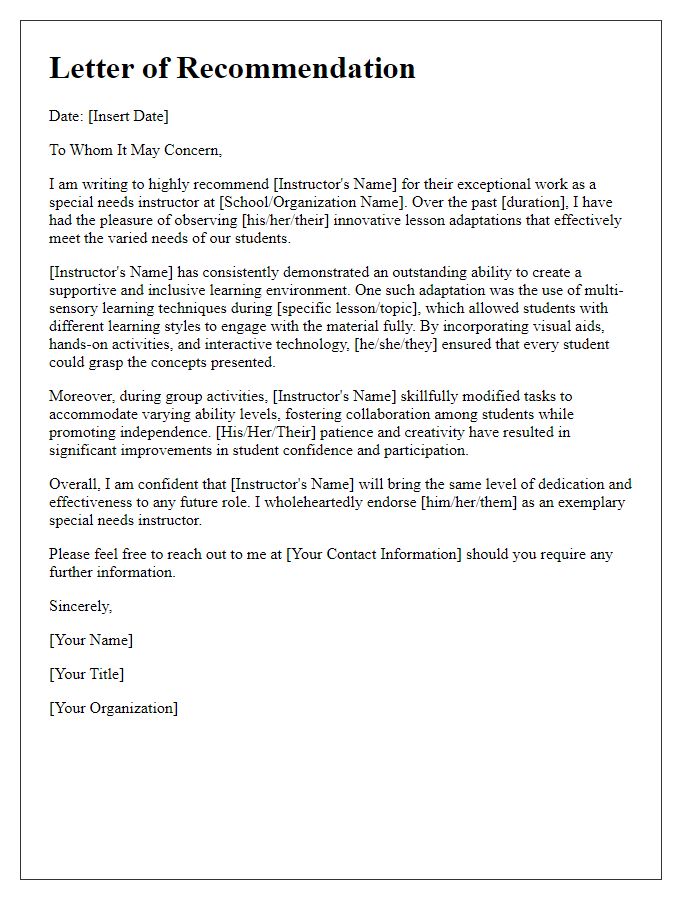
Letter template of recommendation for a special needs instructor focusing on behavior management skills.
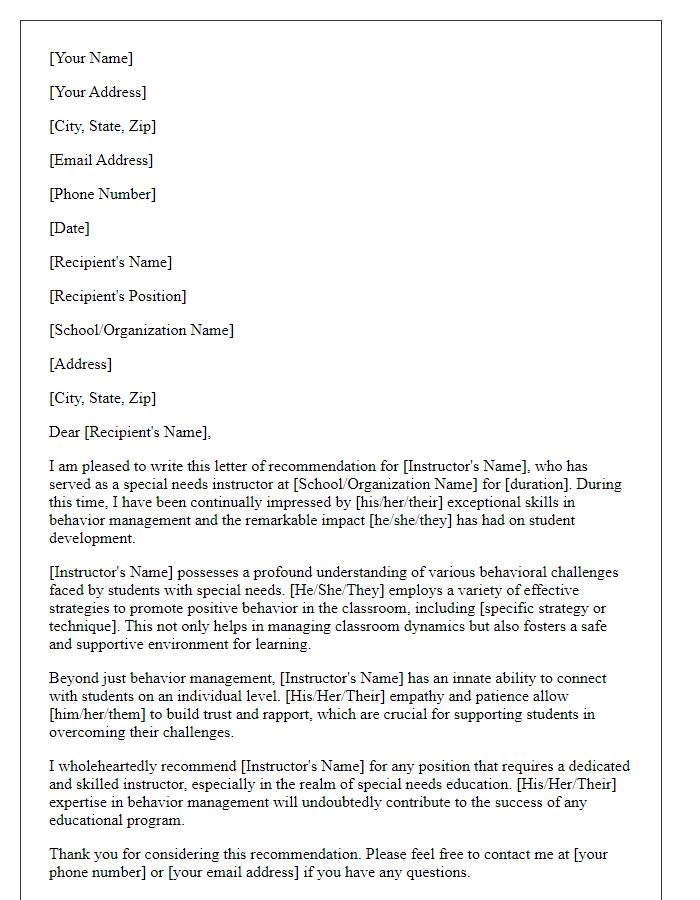
Letter template of recommendation for a special needs instructor promoting inclusive classroom practices.
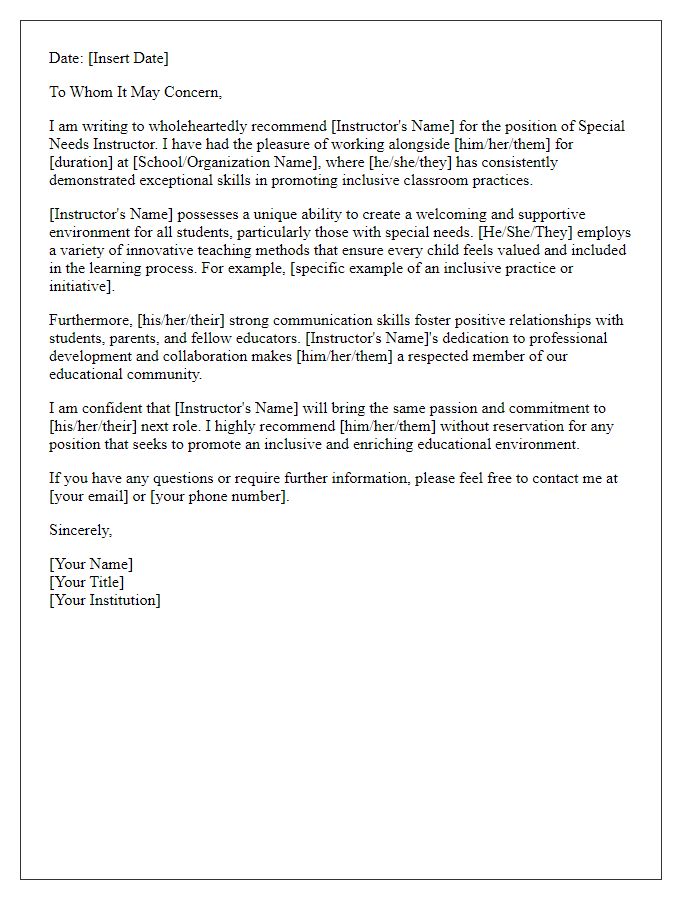
Letter template of recommendation for a special needs instructor analyzing student progress and achievements.
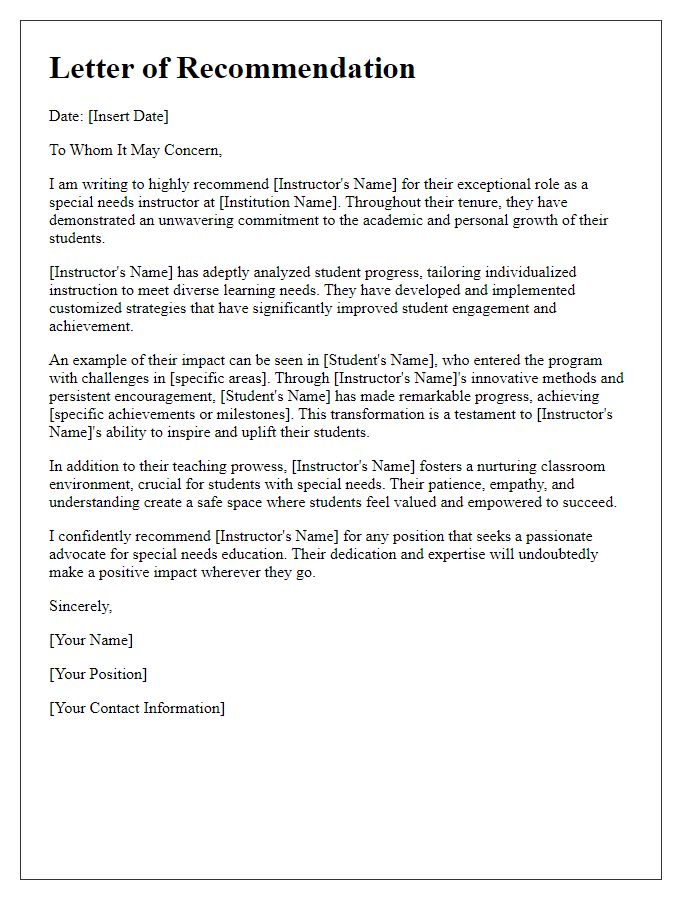
Letter template of recommendation for a special needs instructor underlining commitment to professional development.
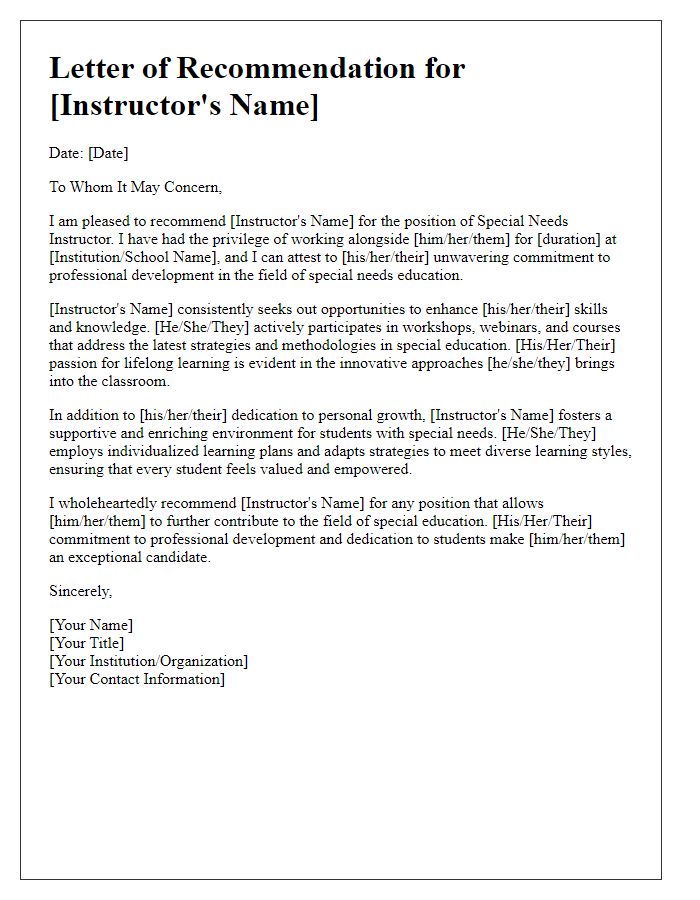

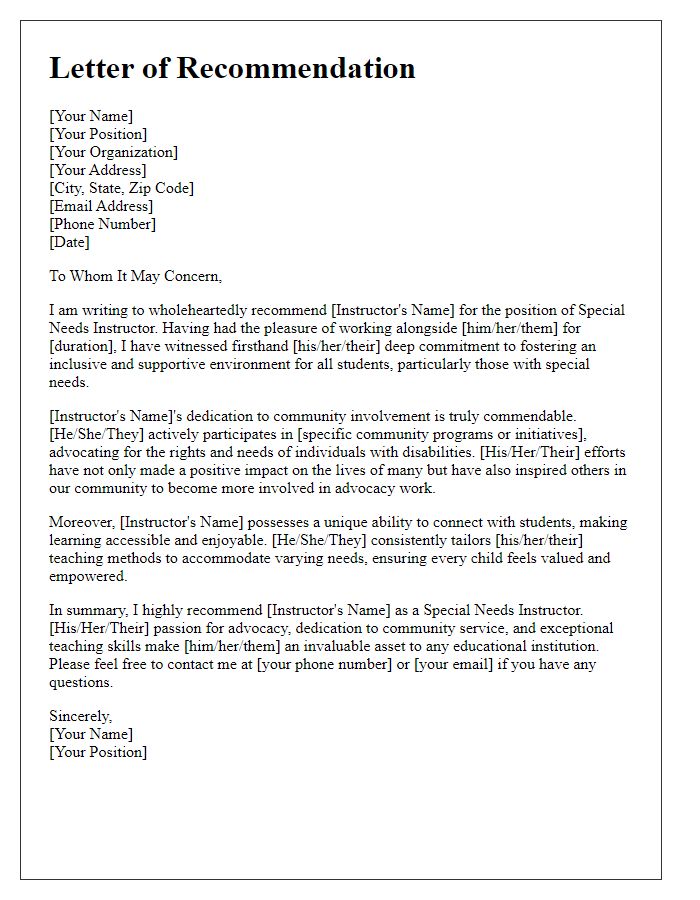


Comments